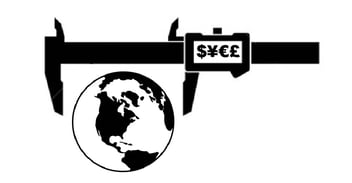Want Great Global Content? Find a Great Translator
2 min read
 As a good marketer in the digital age, you probably know how to find the right partner for a lot of your needs, from programmers to event planners. Chances are you have less confidence about how to do the same for a key aspect of your global content marketing campaign: Finding and engaging a great translator.
As a good marketer in the digital age, you probably know how to find the right partner for a lot of your needs, from programmers to event planners. Chances are you have less confidence about how to do the same for a key aspect of your global content marketing campaign: Finding and engaging a great translator.
As you have certainly seen from infamous global advertising translations gone wrong, messaging that is incorrect as a result of poor translation or localization can undermine the entire investment you’ve made in the content and the campaign, not to mention your brand’s valuable reputation.
One of the most important things to consider when hiring a localization service provider (LSP) or an individual contractor is whether they understand the cultural aspects of your market in addition to fluency in the language. Look for a native speaker who grew up (or has spent a lot of recent time) in your target market. The more specialized your industry jargon – think medicine or law – the more important it is to find an expert in both the language and the industry terminology. As you would expect, the steeper the learning curve the higher the cost.
Keep in mind that although many translators are accredited or certified, there is really no overarching set of standards or government licensing/accreditation rules to which translators are required to adhere. So instead, you need to look at other ways to gauge competence and quality, ranging from independent audits and referrals from trusted peers, to reviews and evaluations posted in online communities. Cloudwords provides a marketplace of pre-screened, professional vendors, and customers are able to post reviews on service and completed projects, so you get firsthand information about quality and performance.
Although it’s always important to maintain open lines of communication from the first project query to the last review signoff, it’s especially critical with translation projects. It sounds cliché but there is truth to it – much can get lost in translation. Therefore, it’s important to share content, standards, style guides and other multilingual assets with your translator in an easy-to-use, organized manner that all stakeholders – across your organization and the vendor – can access. A translation automation platform will help manage communication, streamline processes, and provide accurate reporting, such as cost per word and translation memory data.
If you want to expand your business globally, or even just add languages to domestic campaigns, a great translation service provider and a great translation automation platform go hand-in-hand.
For tips on how to find a great translator or LSP, download our new guidebook, 8 Keys to Finding a Great Translator.



